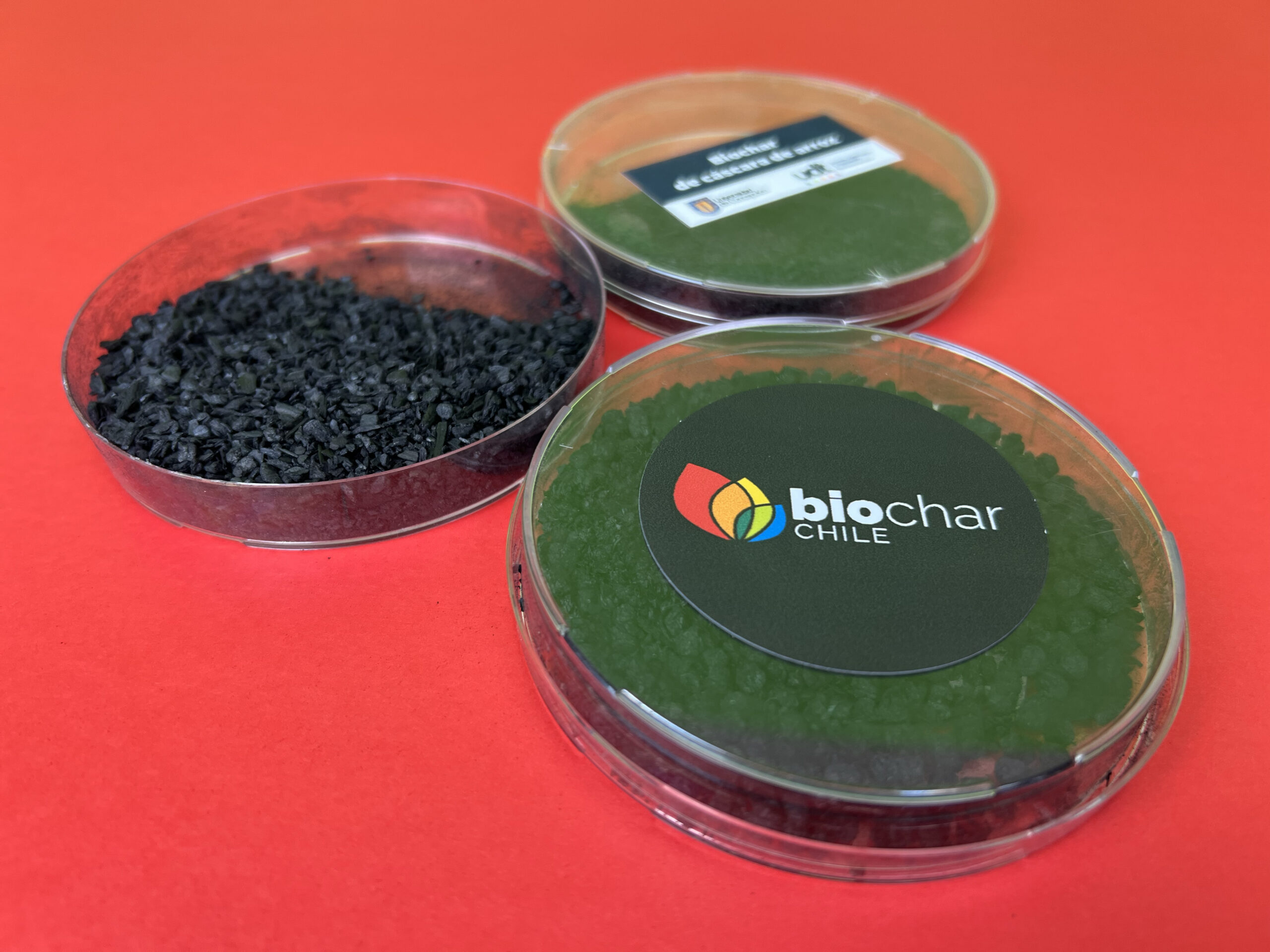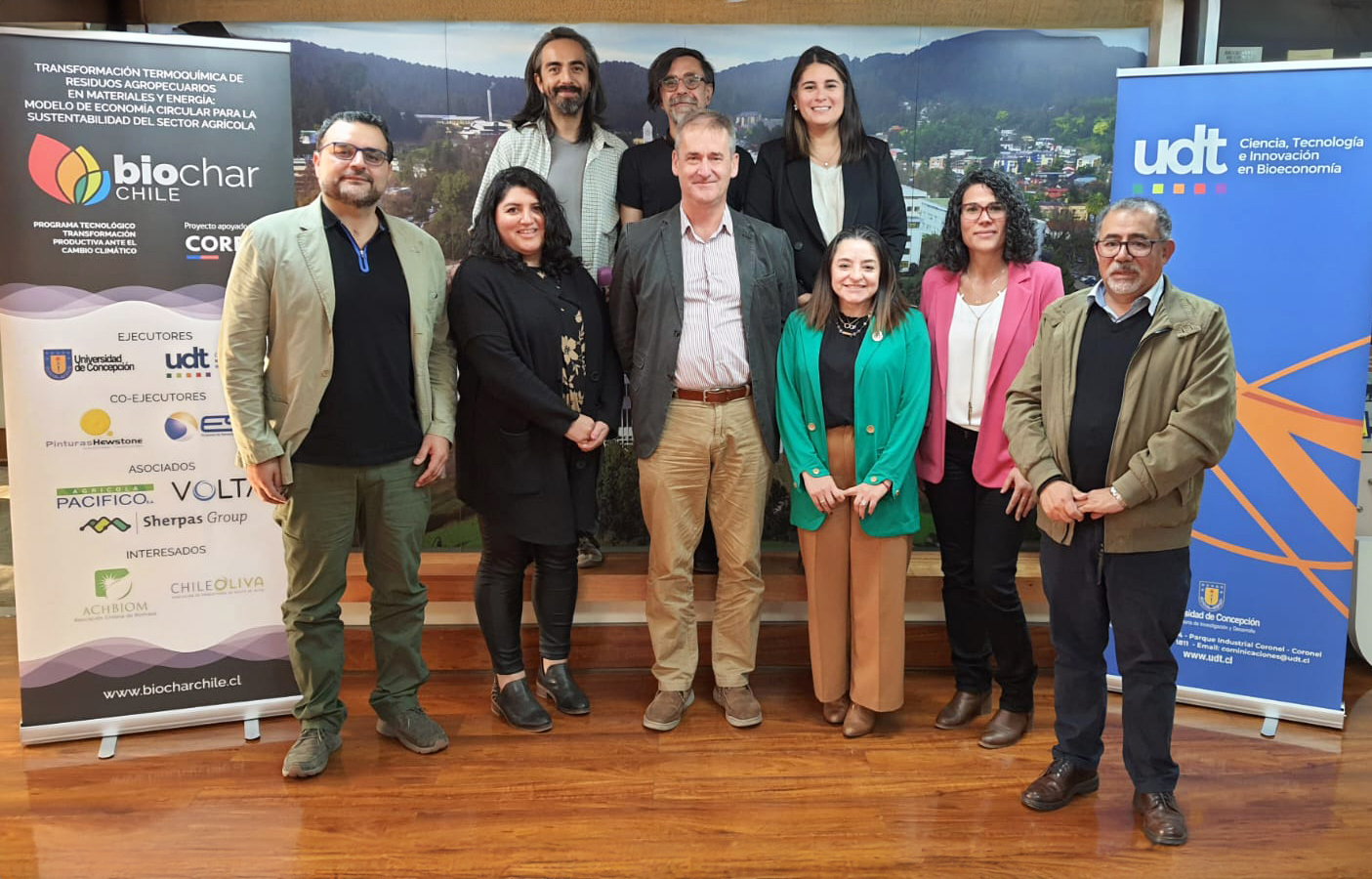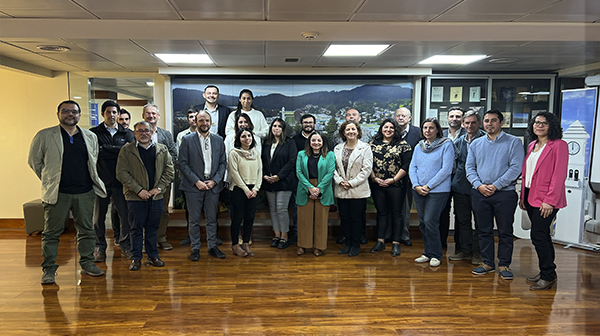The project, which has a duration of 5 years and seeks to expand to various regions of the country and Latin America, aims to generate a circular economy by transforming biomass and plastic waste into materials that capture and store carbon, also helping to fertilise soils.
Biochar is a charcoal used to develop fertilisers and soil amenders that have a good water retention capacity and are rich in carbon. This latter characteristic also allows such fertilisers to act as a carbon capture and storage mechanism, thus reducing greenhouse gases.
With this background as a basis and seeking to address the environmental and sustainability challenges of the agricultural sector, the Technological Development Unit (UDT) of the University of Concepción, together with Corfo, developed the “Technological Program for Productive Transformation in the face of Climate Change Biochar-Chile”, which aims to thermochemically transform agricultural waste such as biomass and plastics derived from this activity, into biochar through pyrolysis technology.
The launch of the program was held at the Santiago Unit of the University of Concepción, an activity attended by Corfo’s Technological Capacities Manager, Fernando Hentzschel Martínez, who said that this project is part of the institution’s sustainable productive development strategy, considering that our economy is based on natural resources, which are affected by climate change. “We ourselves are responsible for developing technologies that allow us to revalue our waste, generate new businesses, new jobs and, of course, considerably reduce CO2 and greenhouse gas emissions associated with the main economic activities of our country,” said Corfo’s Technological Capacities Manager.
The activity also had words from the Director of the Biochar-Chile programme and professional of the UDT of the UdeC, Cristina Segura Castillo, who pointed out that this work “seeks to take charge of the biomass and plastic waste generated by agriculture and transform them into products that are for agriculture itself”, considering that biochar is applied precisely to agricultural soils and meadows, therefore, “we see a very interesting application niche in livestock farming, because livestock farming today faces the challenge of lowering its emissions and biochar can help to capture carbon and lower emissions in this sector”. In this sense, the programme director emphasised that it is about “integrating waste into products in a comprehensive and energy-efficient way”.

Growth projections
Although the program has a duration of 5 years, the projections are longer term not only in time but also in coverage of regions or territories, as stated by all the authorities present. “When I speak of region, I am not only referring to the agricultural regions of Chile, but also to all of Latin America, since we are all facing the same geoclimatic change, which is strongly stressing our productive activity”, said the Manager of Technological Capacities of Corfo, adding that what is ultimately sought is to transform the country’s economic activity forever, considering the context and needs that the world is facing today with climate change.
Similarly, the Director of the program, Cristina Segura, emphasised that the idea is not to wait until the end of the project to make the technology transfer, “but during the execution of the project to be able to raise biochar projects in Chile”. As for the future projection, the aim is for this industry to develop in different regions of the country, thus covering most of the national agricultural soils, which implies “that several plants can materialise as a business model, distributed in the different regions of Chile to take advantage of the different waste in each area and contribute to the general biochar industry in the country and then hopefully look towards all of Latin America”.
The Director of the Santiago Unit of the UdeC, Marcela Angulo González, highlighted the collaboration between industry and academia that generates a great potential for value creation. “We believe that as a country we have not only a duty, but also a tremendous opportunity to put knowledge and talent at the service of these great opportunities and be able to generate technology in Chile, which is then applicable to other geographies and we can also export knowledge and not just natural resources,” she said.

More information at: https://biocharchile.cl/en/ptec-english/

